Diagnostics
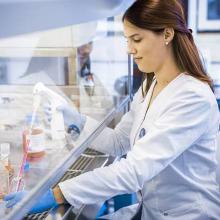
GSI/FAIR researchers in the battle against COVID-19
The GSI Helmholtzzentrum für Schwerionenforschung and the Facility for Antiproton and Ion Research (GSI/FAIR) develops innovative research strategies to support the fight against the current COVID-19 pandemic. The Biophysics Department plans to inactivate the virus with high-energy heavy ions in order to develop vaccines in cooperation with the Helmholtz Centre for Infection Research (HZI). In addition, the therapeutic effect of low-dose radiation against pneumonia caused by SARS-CoV-2 is currently being investigated. The Materials Research Department is working on membranes made of nanopores for improved and fast virus detection and for the development of tailored membranes for viral filtration masks.
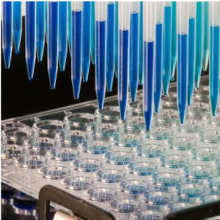
CZ-OPENSCREEN: Coronavirus sample testing and database
The National Infrastructure for Chemical Biology (CZ-OPENSCREEN), Czech node to EU-OPENSCREEN ERIC, hosted by the Institute of Molecular Genetics of the Czech Academy of Sciences, plans to test up to 1,000 samples per day. CZ-OPENSCREEN focuses on the identification of new molecular probes and tools for research and validation of compounds suitable for the development of new drugs. The team has also developed the internal database CORONAbase, to register samples and to transform all the appropriate personal data to an electronic version. CZ-OPENSCREEN is sharing the know-how of high-throughput workflow for RNA isolation and preparation of RT-qPCR reactions, as well as the CORONAbase, with other academic institutions involved in Covid-19 testing, in order to improve their testing services and standards.
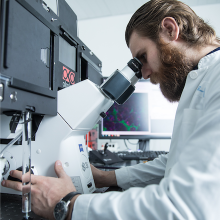
Euro-BioImaging: Open access to services
Biological and biomedical imaging technologies are essential for addressing many of the research questions related to Covid-19, from fundamental research at the molecular and cellular level to medical applications and diagnostics. Euro-BioImaging ERIC provides open access to imaging technologies, training and data services at its 21 Nodes, listed in a dedicated web page along with other related resources.
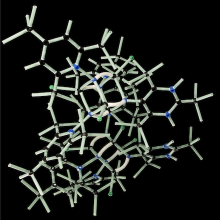
NANBIOSIS: Rapid access for biomedical product development
The Infrastructure for the Production and Characterization of Nanomaterials, Biomaterials and Systems in Biomedicine (NANBIOSIS) provides rapid access for COVID-19 research. It offers preclinical stages services of biomedical product development. Specifically, synthesis and preparation of biomolecules like antibodies, peptides, recombinant proteins, oligonucleotides for diagnostic, therapeutic and prophylactic purposes.
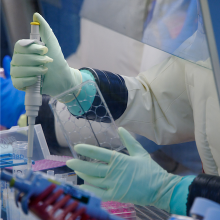
ERINHA: High containment facilities for pre-clinical research
The European Research Infrastructure on Highly Pathogenic Agents (ERINHA) provides access to its members – leading European high containment facilities (BSL3 and BSL4) -, as well as expertise and project management services to advance research on SARS-CoV-2 / COVID-19. The available high containment research capacities include: in vitro research capacity (standard virologic assays, high throughput SARS-CoV-2 screening assays, diagnostic development and testing capacity, virus propagation and quantification), in vivo research capacity (small animal disease models, Non-Human Primates (NHP) disease models, standard in vivo virologic and immunological assays, pre-clinical vaccines and therapeutics testing). Additionally ERINHA provides support for coordination of pre-clinical research activities, project management and advise on protocols.
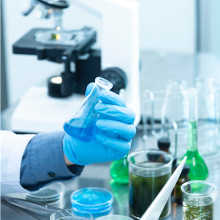
EVAg: Development of SARS-Cov-2 diagnostic test
The European Virus Archive (EVA-Global) is a virtual collection for human, animal and plant viruses, that provides researchers with the necessary material for diagnosing Coronavirus infection. EVAg has developed, and published on January 21st, 2020, the now worldwide used PCR based SARS-Cov-2 diagnostic test. To date, more than 1000 kits of reagents and reference materials have been delivered worldwide, using EVAg budget provisions.
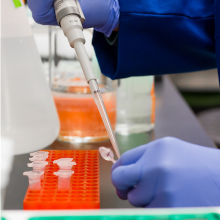
INCDSB: Biomedical services for COVID-19 testing
The PCR-RT capabilities of the Romanian National Institute for Biological Sciences (INCDSB) - member of the ESFRI Consortium DANUBIUS-RI - as part of the global efforts to fight against COVID -19, has made available the services for the Coronavirus testing and is now very actively cooperating with the Romanian Government in the testing campaign at national level. INCDSB is actively supporting Romanian Government with trained personnel, logistics and infrastructure (several devices and a laboratory of cell cultures with expertise in cytotoxicity testing of medical devices).
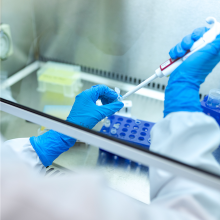
MIRRI: Active development of diagnostic tests
The Microbial Research Resource Infrastructure (MIRRI) covers different European Biological Resource Centres. Within the French node of MIRRI, one of the units of the Centre de Resources Biologiques de l'Institut Pasteur (CRBIP), namely the biobank of human samples (ICAReB), is actively working in relation to the SARS-CoV2 outbreak. They are receiving hundreds of blood samples per day from different geographical areas and institutions in France. These samples are prepared, cryopreserved and distributed to Pasteurian researchers developing novel diagnostic tests, specifically serological tests.

EU-OPENSCREEN: Access to pilot compound library
EU-OPENSCREEN and its partner sites are actively involved in the study of SARS-CoV-2, aiming to identify therapeutics and search for diagnostics. EU-OPENSCREEN provides a fast access track for scientist wishing to use their pilot compound library for their COVID-19 related research activities.
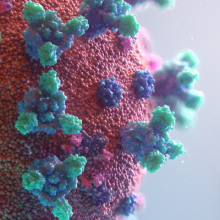
EATRIS: Biomedical research resources
The research resources of European Infrastructure for Translational Medicine (EATRIS) are highly relevant for the research community in the context of the COVID-19 pandemic, and has created an inventory of all related research activities underway at EATRIS facilities.
As part of the Alliance of Medical Infrastructures with BBMRI and ECRIN, EATRIS also offers a Fast Response Service for researchers.
